
|
The 1940's
|
Don Nardo |
Describes the United States during the decade of the forties, focusing on involvement in World War II, becoming a superpower, and the development of "pop" music and television. |
OL15072102W |
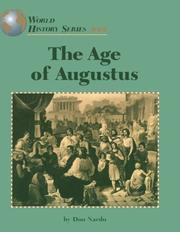
|
The age of Augustus
|
Don Nardo |
Describes the politics, culture, religion, and society of Rome during the reign of the Emperor Augustus. |
OL15072103W |
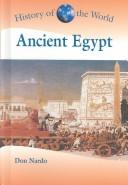
|
Ancient Egypt
|
Don Nardo |
Provides a history of ancient Egypt, with emphasis on religion and politics, and discusses such modern-day discoveries as King Tut's tomb through which that history was revealed. |
OL15072111W |

|
Anxiety and phobias
|
Don Nardo |
Defines anxieties and phobias and discusses their causes and treatment. |
OL15072121W |
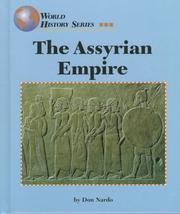
|
The Assyrian Empire
|
Don Nardo |
Discusses the history of the Assyrian Empire, including its early people, the rise of the Assyrian nation, its rebirth, the empire at its height, and the nation's collapse. |
OL15072126W |
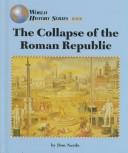
|
The collapse of the Roman Republic
|
Don Nardo |
Focuses on the often chaotic events and larger-than-life personalities of the fateful last republican century and discusses the power struggles which gave way to a dictatorship. |
OL15072157W |

|
Death penalty
|
Don Nardo |
Discusses various aspects of the debate over capital punishment, including its use as a deterrent to crime, discrimination and the death penalty, juveniles on death row, and the morality of this sent… |
OL15072165W |
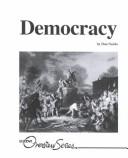
|
Democracy
|
Don Nardo |
Discusses the concept of democracy as it has developed in America and abroad. |
OL15072168W |
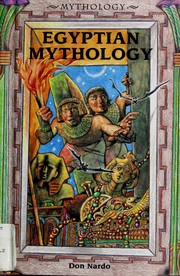
|
Egyptian mythology
|
Don Nardo |
Every culture has stories or myths explaining how the world began or why certain events happen. In Egyptian Mythology, Don Nardo discusses various myths, including "The Creation of the Gods and Huma… |
OL15072181W |
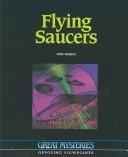
|
Flying saucers
|
Don Nardo |
Discusses the debate over whether unidentified flying objects really exist and how belief in them affects our culture. |
OL15072199W |
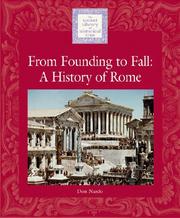
|
From founding to fall
|
Don Nardo |
Explores the Roman Empire from its mythical founding by Romulus, through development and expansion to decline after the barbarian invasions of the fourth and fifth centuries. |
OL15072207W |
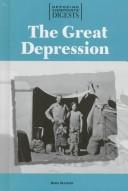
|
The Great Depression
|
Don Nardo |
Presents contrasting viewpoints about the best remedies for the economic crisis of the 1930's, the implementation of President Roosevelt's New Deal, and the historical impact of both the Depression a… |
OL15072214W |

|
Great Elizabethan playwrights
|
Don Nardo |
Discusses the origins of English-speaking theater and includes facts about seven early Elizabethan playwrights, including William Shakespeare. |
OL15072216W |
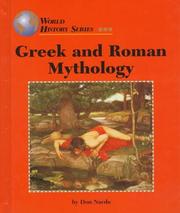
|
Greek and Roman mythology
|
Don Nardo |
Examines the historical development of Greco-Roman mythology, its heroes, and its influence on the history of Western civilization. |
OL15072220W |
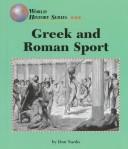
|
Greek and Roman sport
|
Don Nardo |
Discusses the role of sports in the ancient Greek and Roman world, covering the Olympics, the glories of physical achievement, spectacle sports, horse and chariot racing, and leisure sports. |
OL15072222W |
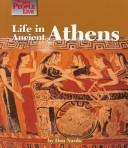
|
Life in ancient Athens
|
Don Nardo |
Discusses life in ancient Athens, including the growth of the city-state and its government, religious beliefs, festivals, customs, athletic games and sports, the visual arts, and the involvement of … |
OL15072285W |
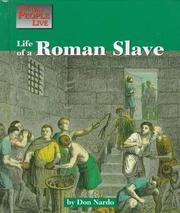
|
Life of a Roman slave
|
Don Nardo |
Discusses aspects of slavery in ancient Rome, including becoming a slave, its privileges and perils, the use of slaves in farming, business, and public service, and the dark side of the institution. |
OL15072287W |
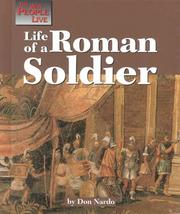
|
Life of a Roman soldier
|
Don Nardo |
Explains how the discipline, courage, and preparation of the Roman soldier combined with the strategies and tactics of his commander and the organization of the military establishment resulted in the… |
OL15072288W |
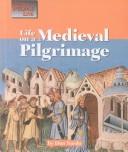
|
Life on a medieval pilgrimage
|
Don Nardo |
Describes the daily life of pilgrims in the Middle Ages, analyzing why they went on pilgrimages and what they hoped to accomplish. |
OL15072289W |
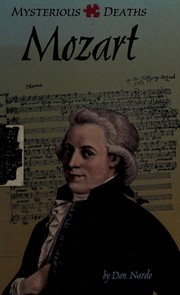
|
Mozart
|
Don Nardo |
Explores the various theories surrounding the mysterious death of Mozart at the untimely age of thirty-five. |
OL15072330W |



















